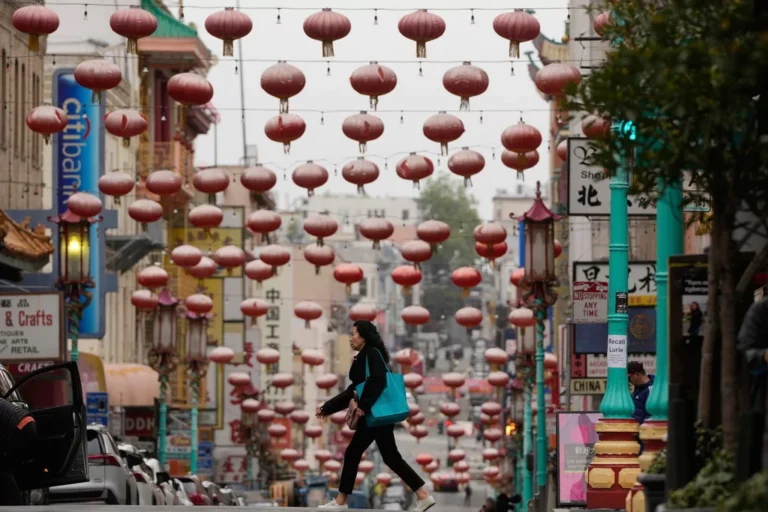Economic Impact of Tariffs on San Francisco’s Chinatown
San Francisco’s Chinatown, the oldest and largest of its kind in the United States, is facing significant challenges due to steep tariffs imposed on goods from China. Currently set at 145%, these tariffs are impacting around 1,000 small businesses that are integral to the vibrant immigrant community in the area.
Effects on Small Businesses
According to Donald Luu, President of the San Francisco Chinese Chamber of Commerce, approximately 90% of the products sold in Chinatown are sourced from China. As a direct result of the tariffs, many merchants have raised their prices significantly—some by over 30%—making it increasingly difficult for local businesses to thrive.
“With this economic trade war, we feel that the effect’s going to be long-lasting and it’s going to threaten the very fabric of Chinatown,” stated Luu during a press conference alongside local business leaders.
Challenges for Community and Tradition
Magan Li, who owns Lion Trading, a store specializing in religious items, expressed concern that high prices might deter customers altogether. She explained the severe impact the tariffs could have on their traditional practices and community identity:
“This is a very, very big blow to our small business. We’re at risk of losing the traditions that the community has spent so much time protecting.”
Li noted that incense prices have surged, stating that a bundle that used to cost between five and 20 dollars could now reach prices up to 50 dollars due to these tariffs.
A Broader Citywide Impact
Local policymakers are raising alarms about the wider implications of these tariffs. Assemblymember Matt Haney emphasized that the difficulties faced by Chinatown extend beyond its borders, stating:
“When Chinatown is hit, all of us are hit here in this city.”
Business Strategies Amid Uncertainty
In an effort to mitigate the effects of rising costs, some businesses are holding off on price increases by utilizing existing inventory. Nancy Yu, who operates several stores including Asiastar Fantasy, shared her response to the situation:
“I just returned from a trip to China last week. We had really good talks with all my suppliers and my shipper, and we all think we should hold my shipment a little bit,” she explained. Yu highlighted that shipping costs for her products have at times doubled or even tripled since the onset of the trade conflict.
Consumer Sentiment
San Francisco residents are also feeling the effects of the tariffs. Alex Kolchinski remarked on the declining consumer confidence stemming from the uncertainty surrounding future trade relations:
“I don’t know if we’re going to be in a trade war… It’s hard to plan ahead when you have no idea what’s coming.”
Additionally, consumer Becky Mincio noted that while she feels stable financially, rising prices will influence her shopping habits.
Conclusion
The ongoing trade conflict and its associated tariffs pose a serious threat to the economic stability of San Francisco’s Chinatown and the broader community. As local businesses navigate these turbulent waters, the long-lasting effects on cultural traditions and economic viability remain a pressing concern.



